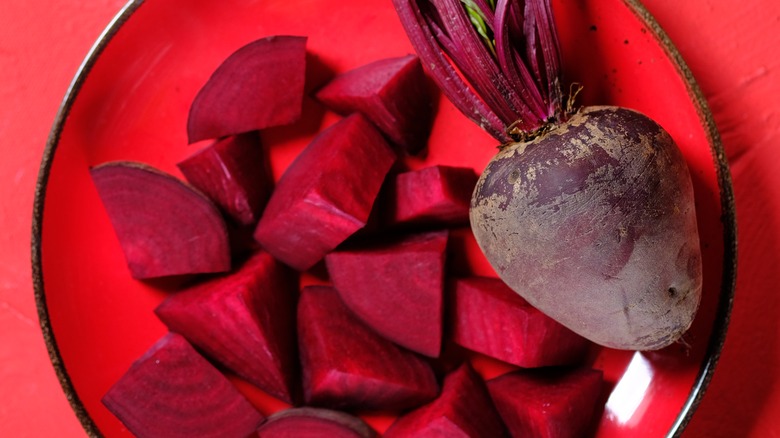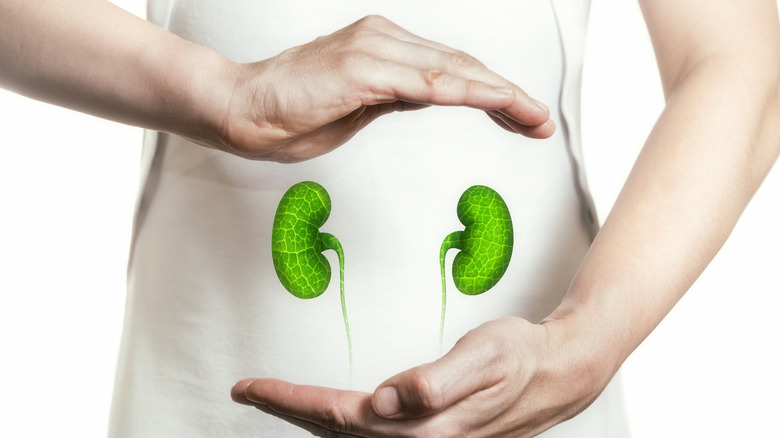Can You Eat Too Many Beets?
Beets are a veritable superfood. These deep red root vegetables pack a powerful punch of fiber, vitamins, and minerals, and their unique pigment is a sign of the unique and potent antioxidants that they contain, called betalains (via Cleveland Clinic). According to the American Institute for Cancer Research, betalains are both good for your heart and provide cancer protection properties. In animal studies, they have been found to both inhibit the growth of cancerous cells and increase the body's own production of cancer-fighting cells and enzymes at the same time. That's a powerful root.
But is it true, as the saying goes, that it's possible to have too much of a good thing when it comes to beets? Can consuming too many of these natural superfoods actually lead to health problems? Many people who have eaten beets have noticed side effects like stools or even urine turning red, but is this really a sign of potentially harmful side effects? The truth is complicated, and it depends on your current health condition and how balanced your overall diet is.
Can beets harm the kidneys?
According to the Cleveland Clinic, beets are a rich source of oxalates. Too many oxalates in the body, called hyperoxaluria, can cause serious health issues, including kidney damage in the form of kidney stones and crystals which can lead to kidney failure. In addition, if the kidneys become unable to filter out these excess oxalates, they can enter the bloodstream and build up in other areas of the body, which can lead to bone disease, eye problems, blood and heart conditions, and even skin problems (via Cleveland Clinic).
For most people, eating beets in moderation will not cause a problem. According to Washington College, there are also several techniques for reducing the oxalate build-up even if you do eat lots of beets, such as pairing them with calcium-containing foods. Calcium binds with oxalates and neutralizes them, which helps your body keep these compounds from accumulating. Drinking lots of water with beets also helps your body flush out the oxalates, and boiling beets also removes much of the oxalates from the root, as they are water-soluble.


